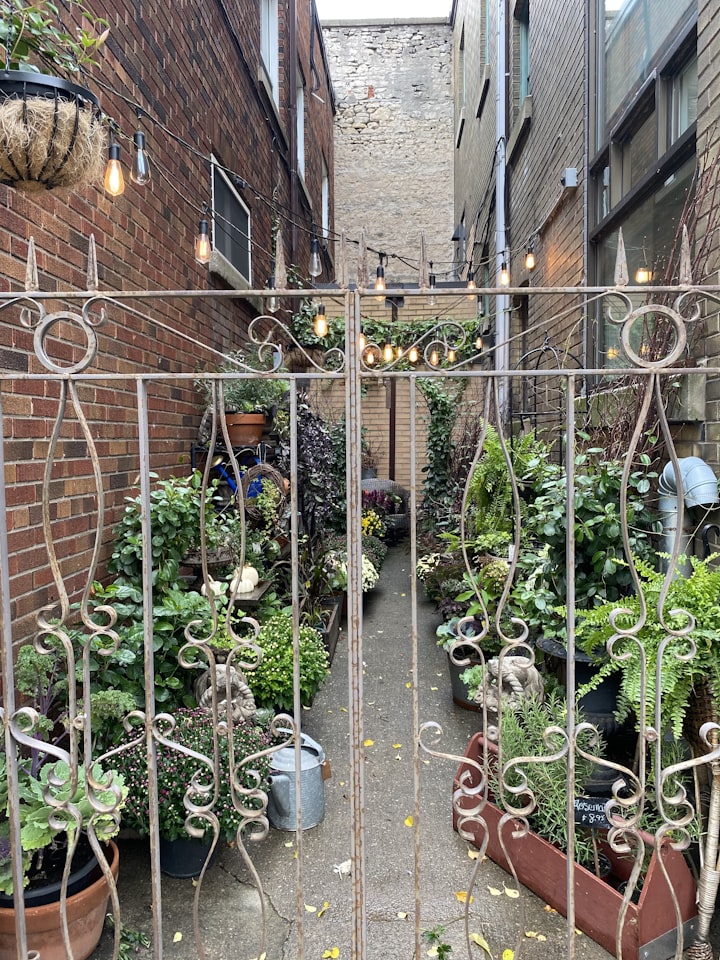Garden Plants
Garden Plants: Adding Beauty and Life to Your Outdoor Space
Are you looking to transform your outdoor space into a vibrant and inviting oasis? Look no further than garden plants! These living wonders have the power to add beauty, color, and life to any garden or backyard.
Whether you have a green thumb or are just starting your gardening journey, incorporating garden plants is a rewarding and fulfilling experience.
In this article, we will explore the different types of garden plants, and their benefits, and provide useful tips for growing them successfully.
Introduction
Garden plants are an essential component of any well-designed garden. They come in a wide variety of shapes, sizes, colors, and fragrances, allowing you to create a personalized and captivating outdoor space. From vibrant flowering plants to luscious vegetable and herb plants, each type brings its unique charm and benefits.
Importance of Garden Plants
The inclusion of garden plants goes beyond mere aesthetics. They play a crucial role in enhancing the overall environment and well-being. Let's delve into some of the significant benefits of having garden plants in your outdoor space.
Types of Garden Plants
1. Flowering Plants
Flowering plants are a popular choice among garden enthusiasts for their enchanting blooms. They are further classified into annuals and perennials, each with its distinctive characteristics and life cycles.
1.1 Annuals
Annuals are plants that go through their entire life cycle within a span of one year. They sprout, flower, produce seeds, and die in a single growing season. Marigolds, petunias, and zinnias are some examples of colorful annual flowering plants that bring vibrancy to gardens.
1.2 Perennials
Perennials are plants that have a lifespan exceeding two years. They usually die back during winter and regrow in the following spring. With their ability to return year after year, perennials like roses, daisies, and peonies offer long-lasting beauty and create a sense of continuity in the garden.
2. Vegetable Plants
Growing your vegetables can be a rewarding and sustainable practice. Vegetable plants can be categorized into leafy greens, root vegetables, and fruiting vegetables.
2.1 Leafy Greens
Leafy greens such as spinach, lettuce, and kale are packed with essential nutrients and are relatively easy to grow. They add freshness and flavor to your meals while providing numerous health benefits.
2.2 Root Vegetables
Root vegetables like carrots, radishes, and potatoes are prized for their underground edible parts. They require well-drained soil and can be harvested at various stages of growth, making them versatile additions to any garden.
2.3 Fruiting Vegetables
Fruiting vegetables, including tomatoes, peppers, and cucumbers, bear delicious and nutritious fruits. These plants require proper support and ample sunlight to thrive and produce an abundant harvest.
3. Herb Plants
Herb plants offer a fragrant and flavorful addition to any garden. Whether you're a culinary enthusiast or enjoy the therapeutic benefits of herbs, growing herbs like basil, mint, and rosemary allows you to add a dash of freshness to your dishes or create soothing herbal teas.
4. Ornamental Plants
Ornamental plants, such as ferns, palms, and decorative grasses, are primarily chosen for their unique foliage or structural appeal. These plants bring texture, visual interest, and a touch of elegance to gardens, making them stand out as focal points or adding depth to flowerbeds.
5. Climbing Plants
Climbing plants are excellent choices for adding vertical interest and maximizing space utilization in gardens. Vines like ivy, jasmine, and clematis can be trained to climb walls, trellises, or pergolas, creating a beautiful and lush green canopy.
Benefits of Garden Plants
Apart from the visual appeal, garden plants offer several benefits that make them a worthwhile addition to your outdoor space.
Aesthetics and Beauty: Garden plants bring life, color, and beauty to your surroundings, creating a visually pleasing and inviting atmosphere.
Improved Air Quality: Plants are natural air purifiers, absorbing carbon dioxide and releasing oxygen. They contribute to cleaner and fresher air, promoting better respiratory health.
Stress Reduction: Spending time surrounded by nature and greenery has been proven to reduce stress levels, enhance mood, and improve overall well-being.
Food Production: Vegetable and herb plants allow you to grow your own fresh and organic produce, promoting self-sufficiency and a healthy lifestyle.
Tips for Growing Garden Plants
While gardening can be a delightful hobby, it requires careful attention and proper techniques to ensure successful plant growth. Here are some essential tips for growing garden plants effectively.
Soil Preparation: Prepare the soil by adding organic matter, such as compost or well-rotted manure, to improve its structure, drainage, and nutrient content.
Proper Watering: Provide adequate water to your plants, considering their specific needs. Avoid overwatering or underwatering, as both can be detrimental to plant health.
Sunlight and Shade: Understand the sunlight requirements of different plant species and place them in appropriate locations where they can receive the required amount of sunlight or shade.
Pest Control: Implement effective pest control measures to protect your plants from common pests and diseases. This may include using organic pesticides, companion planting, or physical barriers.
Conclusion
Garden plants have the incredible power to transform any outdoor space into a lively and captivating haven. From their visual appeal to the numerous benefits they offer, incorporating a variety of garden plants in your backyard or garden brings joy, tranquility, and a touch of nature to your life.
So, unleash your creativity, embrace the wonders of gardening, and let your garden flourish with an array of beautiful and vibrant plants.






Comments
There are no comments for this story
Be the first to respond and start the conversation.